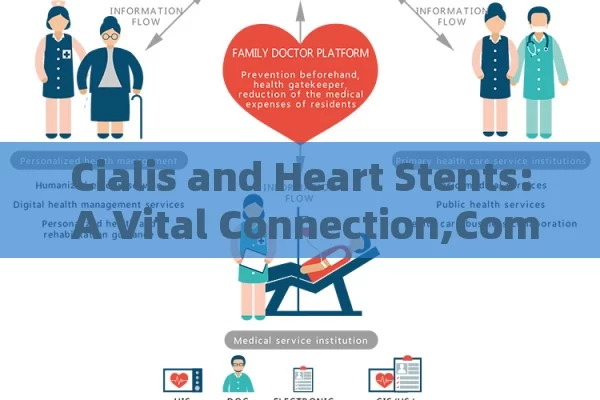Cialis and Heart Stents: A Vital Connection,Combo Therapy: Cialis and Heart Stents
The use of Cialis and heart stents is a topic of significant importance in the field of medicine. Cialis, a medication commonly used to treat erectile dysfunction, has also shown potential benefits in cardiovascular health. Heart stents, on the other hand, are devices implanted to keep arteries open and improve blood flow to the heart. Understanding the relationship between these two elements is crucial for patients and healthcare providers.
Cialis works by relaxing the smooth muscles in blood vessels, which can improve blood flow. This mechanism may have implications for patients with heart conditions, as it could potentially enhance the effectiveness of heart stents. Research has shown that Cialis may have beneficial effects on endothelial function, which is essential for maintaining healthy blood vessels.

In addition, Cialis has been studied for its potential role in reducing inflammation and oxidative stress, both of which are factors that contribute to cardiovascular disease. By reducing these processes, Cialis may help to prevent the formation of plaque in arteries and improve the overall function of the cardiovascular system.
Heart stents are commonly used in patients with coronary artery disease to open blocked arteries and restore normal blood flow. The success of stent implantation depends on various factors, including the patient's overall health, the location and severity of the blockage, and the type of stent used. Cialis may play a role in enhancing the outcome of stent procedures by improving blood flow and reducing the risk of complications.
Several studies have investigated the use of Cialis in combination with heart stents. For example, one study found that patients who took Cialis after stent implantation had a lower risk of restenosis, or the re-narrowing of the artery, compared to those who did not take the medication. Another study suggested that Cialis may improve endothelial function and reduce inflammation in patients with coronary artery disease.
It is important to note that the use of Cialis in patients with heart stents should be carefully evaluated by a healthcare provider. Certain factors, such as the patient's underlying health conditions and the use of other medications, may influence the safety and effectiveness of Cialis. Patients should always consult with their doctor before starting any new medication, especially if they have a history of heart disease.
In conclusion, the relationship between Cialis and heart stents is an area of ongoing research and interest. While more studies are needed to fully understand the potential benefits and risks, the available evidence suggests that Cialis may have a role in improving cardiovascular health in patients with heart stents. Healthcare providers should consider the individual circumstances of each patient when recommending the use of Cialis and closely monitor for any potential side effects. Further research is warranted to explore the mechanisms underlying this relationship and to develop more targeted therapeutic strategies.
In the intricate landscape of cardiovascular health, the synergy between medications like Cialis and medical procedures such as heart stent placement has become a focal point for both patients and healthcare providers. This article delves into the interplay between these two critical components, shedding light on their combined impact on patient outcomes and quality of life.
The Crucial Intersection of Cialis and Heart Stents
Heart disease remains one of the leading causes of mortality worldwide, with stents playing a pivotal role in its management by restoring blood flow to blocked arteries. Concurrently, erectile dysfunction (ED) often coexists with cardiovascular issues, affecting nearly 75% of men post-heart attack. The phosphodiesterase type 5 inhibitor, Cialis, is frequently prescribed for ED but also shows promise in improving endothelial function and potentially aiding in heart recovery post-stent.
Understanding the Mechanisms
Cialis works by enhancing the effects of nitric oxide, a molecule crucial for vasodilation. By inhibiting PDE5, it promotes smooth muscle relaxation, which can be beneficial not only for penile tissues but also for the coronary arteries. Studies suggest that this dual action could contribute to improved blood flow and reduced risk of restenosis—a complication where the artery narrows again after stenting.
Clinical Evidence and Practical Implications
Research indicates that patients who take Cialis following stent placement experience better exercise tolerance and reduced rates of major adverse cardiac events. A notable study published in the *Journal of American College of Cardiology* highlighted a 44% reduction in major cardiovascular events among users of PDE5 inhibitors post-stenting. These findings underscore the potential of Cialis as an adjunct therapy in managing post-stent complications.
Case Study: John's Journey
Consider John, a 55-year-old man who underwent heart stent placement due to severe coronary artery disease. Post-procedure, he was prescribed Cialis for his ED, which had worsened after his heart incident. Within weeks, John noticed not just an improvement in his sexual health but also an enhanced ability to perform daily activities without fatigue. His follow-up angiogram showed no signs of restenosis, attributing his positive outcome to the combined effect of the stent and Cialis.
Future Directions and Patient Advice
As research continues to unravel the full spectrum of benefits associated with combining Cialis and heart stents, it is imperative for healthcare professionals to consider this approach in suitable candidates. Patients should engage in open discussions with their cardiologists about their sexual health concerns, as it might reveal underlying cardiovascular issues requiring attention. Moreover, adherence to prescribed medications and lifestyle modifications remains paramount in ensuring long-term success.
Conclusion: A Holistic Approach to Cardiovascular Wellness
The integration of Cialis into the post-stent management plan represents a significant advancement in holistic cardiovascular care. By addressing both physical and psychosocial aspects of patient health, this combination therapy paves the way for improved survival rates and enhanced quality of life. As we look towards the future, ongoing research and personalized treatment strategies will further refine our understanding and application of these therapies, ultimately transforming the landscape of heart disease management.
Efectividad de Priligy